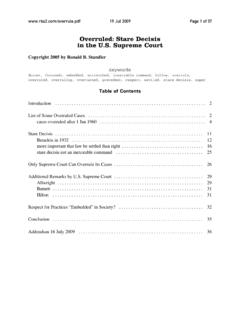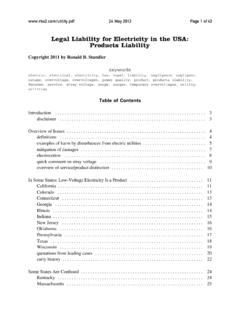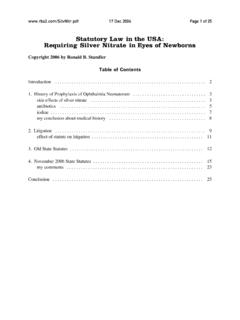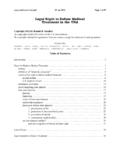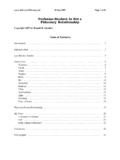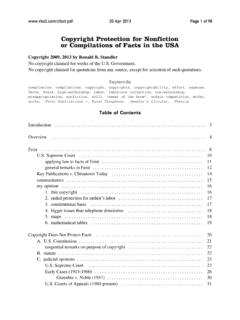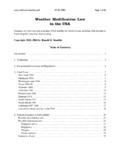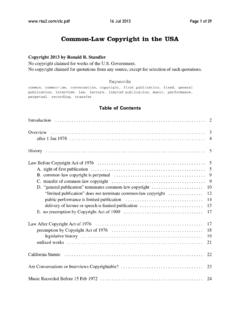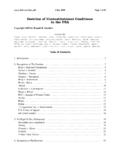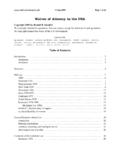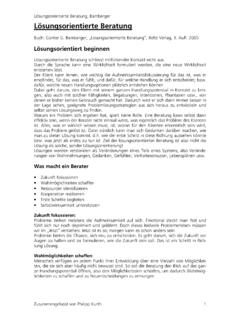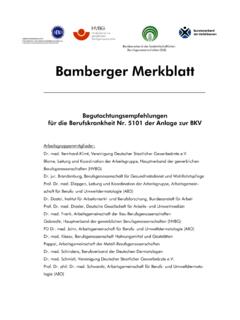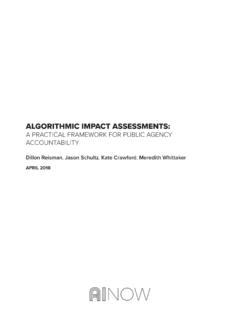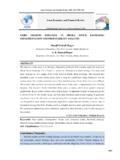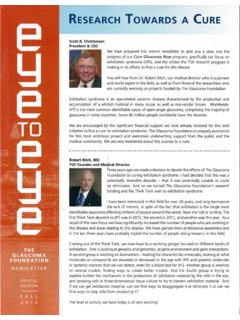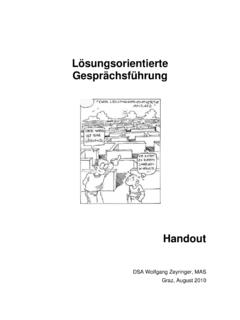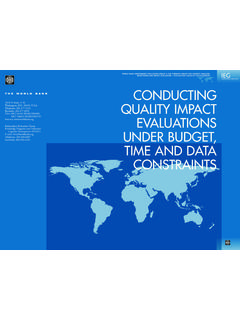Transcription of Liability of Electric Utility in the USA for Outage or ...
1 May 2011 Page 1 of 51 Liability of Electric Utility in the USAfor Outage or BlackoutCopyright 2011 by Ronald B. StandlerNo copyright claimed for works of the copyright claimed for quotations from any source, except for selection of such , duty, Electric , electricity, interruption, law, legal, Liability ,litigation, Outage , tariffTable of ContentsIntroduction .. 2 Outages Are Expected .. 3limited legal duty to provide continuous electricity .. 3utility s tariff is law, not contract .. 5 Legal Problems for Plaintiff .. 7electric Utility not an insurer .. 7economic loss doctrine .. 8outage is not a product? .. 8user s mitigation of damages .. 8 Life-Support .. 10 Cases .. 11 Artesia Alfalfa ( 1960) .. 11 Blackout of 1965 .. 12 Bearden v. Lyntegar Electric Co-op. ( 1970) .. 13 National Food Stores v. Union Elec. ( 1973).
2 V. Consolidated Edison Co. ( 1975) .. 15 Blackout in New York City, July 1977 .. 17 Strauss v. Belle Realty Co. ( 1985) .. 18collateral estoppel & res judicata .. 20 Landrum v. Florida Power & Light ( 1987) .. 21 Singer v. Baltimore Gas and Elec. ( 1989) .. 23 FMR Corp. v. Boston Edison Co. (Mass. 1993) .. 24 Milliken & Co. v. Consolidated Edison ( 1994) .. May 2011 Page 2 of 51 Forte Hotels v. Kansas City Power & Light ( 1995) .. 26 Danisco v. Kansas City Power & Light (Kan. 1999) .. 28 Bamberger v. Indianapolis Power & Light Co. ( 1996) .. 31 Auchan v. Houston Lighting & Power Co. (Tex. 1999) .. 33 Grant v. Southwestern Electric Power (Tex. 2002) .. 36 Florida traffic signal cases (1983-2005) .. 38other states .. 40 Florida Power & Light Co. v. Goldberg (Fla. 2005) .. 41 Deerfield v. Commonwealth Edison Co.
3 ( 2009) .. 46 Blackout of August 2003 .. 48 Conclusion .. 50 IntroductionIn the 1930s, an interruption of electricity to a home or small office for a few minutes was anannoyance or inconvenience. Since 1980, the proliferation of computers and smart appliances inhomes and offices makes an interruption in electricity less tolerable, because of the greaterdependence on continuous electricity. My search on 9 May 2011 of all federal and all state cases in the Westlaw database for thequery:1( Electric ! power) /s ( Outage black-out) found 1687 documents, too many to read in my unpaid time. So I have done more selectivesearches, or broad searches in only a few states ( , Massachusetts, New York, Pennsylvania).This essay follows my previous essay on whether electricity is a product or service, at: . This essay presents general information about an interesting topic in law, but is not legaladvice for your specific problem.
4 See my disclaimer at . From reading e-mail sent to me by readers of my essays since 1998, I am aware that readers oftenuse my essays as a source of free legal advice on their personal problem. Such use is notappropriate, for reasons given at .I list the cases in chronological order in this essay, so the reader can easily follow the historicaldevelopment of a national phenomenon. If I were writing a legal brief, then I would use the1 The term Electric ! will return: electricity, electrical, Electric , .. Westlaw automaticallyincludes plurals so Outage includes May 2011 Page 3 of 51conventional citation order given in the Bluebook. Because part of the audience for this essay isnonlawyers, I have included longer quotations from court cases than typical writing for attorneys. Outages Are ExpectedAt most locations in the USA, the total duration of outages is less than a half-hour per year,which gives the Electric Utility more than a availability.
5 Such a high availability meansthat users will expect continuous Electric are unavoidable in electrical Utility systems. Overhead distribution wires will breakas automobile drivers crash into wooden Utility poles, or from the weight of ice on each wireduring winter storms. Wind can blow tree branches into the wires, which will short circuit thedistribution line, causing upstream fuses or reclosures to interrupt the Electric current. Distributiontransformers or high-voltage switchgear will sometimes fail. For these reasons, no reasonableutility will guarantee continuous electricity to its customers. Indeed, tariffs that are approved by thestate public Utility commission and are part of the contract with the Utility customer commonlyspecify that the Utility is not liable for outages, except for gross negligence or other technicallegal phrase that discourages plaintiffs. Rarely, there will be blackouts ( , outages with a duration of many hours, sometimes morethan a day) over a wide geographical area, often as the result of some catastrophic failure in thehigh-voltage transmission network.
6 The following three blackouts are famous in the USA: 9 Nov 1965 New York State, New England states, New Jersey 13 July 1977 New York City 14 Aug 2003 New York State, Ohio, Michigan, New Jersey, PennsylvaniaWhile blackouts are rare events, each one affects many millions of people for tens of hours. Thetotal damage from one blackout is astronomical. The likelihood of future blackouts motivateselectric utilities to be very careful in writing contracts and tariffs, to limit their Liability for outages. limited legal duty to provide continuous electricityAn Electric Utility typically attempts to limit its legal duty for providing continuous service( , no outages) by inserting a sentence in its tariff. Historically, tariffs that limit Liability ofelectric Utility for outages are derived from similar tariffs for telephone companies. In bothtelephone and Electric power, the justification for limitation of Liability is to provide lower cost ofelectric energy to customers.
7 The following is a chronological list of some major court cases in theUSA that discuss the limitation of Liability for outages in an Electric Utility s May 2011 Page 4 of 51 Lee v. Consolidated Edison Co. of New York, 413 826, 828 ( 1978) ( Wedo not find the exculpatory clause in question to be violative of public policy. In fact, similarprovisions have been repeatedly sustained by the appellate courts of this state as reasonablelimitations on the Liability of a public service corporation, so long as the company has notattempted to absolve itself from its own willful misconduct or gross negligence [citationsomitted]. ); Landrum v. Florida Power & Light Co., 505 552 ( 1987) discussed atpage 21, below; Computer Tool & Engineering, Inc. v. Northern States Power Co., 453 569( 1990) (upheld tariff: The Company will endeavor to provide continuous servicebut does not guarantee an uninterrupted or undisturbed supply of Electric service.)
8 TheCompany will not be responsible for any loss or damage resulting from the interruption ordisturbance of service for any cause other than gross negligence of the Company. TheCompany will not be liable for any loss of profits or other consequential damages resultingfrom the use of service or any interruption or disturbance of service. ); Danisco Ingredients USA, Inc. v. Kansas City Power & Light Co., 986 377 (Kan. 1999)discussed at page 28, below; Auchan USA, Inc. v. Houston Lighting & Power Co., 995 668 (Tex. 1999) discussedat page 33, below; Grant v. Southwestern Electric Power Co., 73 211 (Tex. 2002) discussed at page 36,below; Blake v. Public Service Co. of New Mexico, 82 960, 963-964 ( 2003) (in astreetlight case: W. Page Keeton et al., PROSSER AND KEETON ON THE LAW OF TORTS 93,at 671 (5th ) (stating that tort Liability for interruptions of service would be ruinous forutilities who must provide continuous service to all who apply for it under all kinds ofcircumstances, and that expense of litigation and settling claims could be a greater burden tothe rate payer than is socially justified).
9 During the 1960s and 1970s, New Mexico followed old common law that prevented a Utility fromdisclaiming Liability for negligence. Southwestern Public Service Co. v. Artesia Alfalfa Growers Association, 353 62 ( 1960). Discussed at page 11, below. Against the general rule stated above, Missouri requires the Utility to use reasonable care toprevent outages. National Food Stores, Inc. v. Union Elec. Co., 494 379 ( ). Discussed at page 14, below. May 2011 Page 5 of 51 Utility s tariff is law, not contractA tariff is of higher rank than a contract. A tariff is a kind of governmental regulation, whichis part of the law. This rule makes it more difficult for plaintiff to argue that the tariff isunenforceable. Carter v. American Telephone & Telegraph Co., 365 486, 496 (5thCir. 1966) ( First, atariff, required by law to be filed, is not a mere contract. It is the law. Compania AnonimaVenezolana De Navegacion v.)
10 A. J. Perez Export Co., 5 Cir., 1962, 303 692, 696 &n. 12, cert. denied, 371 942, 83 321, 9 276; .. ), cert. denied, 385 (1967). Cited with approval in DFW Metro Line Services v. Southwestern BellTelephone Co., 901 1267, 1268, n. 4 (5thCir. 1990) (per curiam), cert. den., 498 (1990). Lee v. Consolidated Edison Co., 413 826, 828 ( 1978) ( Onceaccepted by the [Public Utilities] Commission, the tariff schedule (including the limitation ofliability provision) takes on the force and effect of law and governs every aspect of the Utility 'srates and practices ); General Telephone Co. of Northwest, Inc. v. City of Bothell, 716 879, 883 (Wash. 1986)( Once a Utility 's tariff is filed and approved, it has the force and effect of law. Moore Northwest Bell, 34 448, 455, 662 398 (1983); Allen v. General , 20 144, 151, 578 1333 (1978).); West Communications, Inc. v. City of Longmont, 948 509, 516 (Colo.
